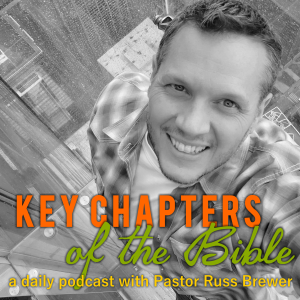
2/13 Leviticus 10 - Strange Fire / False Worship
 2023-02-14
2023-02-14
Far too often, we make up our own ideas of what constitutes true worship. Today, we'll discuss the difficult passage of Leviticus 10 when Nadab and Abihu are killed by God for offering strange fire. We'll look at this passage, understand it in its context, and see how it still can guide us to true worship. Join us!
DISCUSSION AND STUDY QUESTIONS:
1. What was the background of the Levites and how did that relate to their role among the Children of Israel? Why was this role necessary?
2. What did Nadab and Abihu do that was wrong? Why should they have known better?
3. Why was Nadab and Abihu killed? What was wrong with what they did? Why was “death” a necessary response to their sin?
4. How was the standard for the priests higher than for the average person in the nation of Israel? How was the standard for Nadab and Abihu even higher than for the average priest who was just starting out?
5. What were some possible reasons for their dereliction of duty? How might alcohol have contributed to their sin? What principle did the Lord give in verses 8 & 9? What present application might this have for us, considering that we are all priests before the Lord?
6. In verses 6 & 7, what did Moses prohibit Aaron and his sons from doing? Why?
7. In verses 16-18, what did Aaron’s other sons, Eleazar and Thamar, fail to do? What might this indicate about the general attitude they all had towards learning the precepts of the Lord? How do people still demonstrate this attitude today?
8. The podcast pointed out that a key theme of this chapter (and the whole book of Leviticus), is to follow the Lord’s instructions when we approach Him. How might we apply this principle to our lives today?
9. The podcast also pointed out that Leviticus 10 teaches us about making a distinction between what is profane and what is holy. How do we learn these principles? If we do distinguish between what is profane and holy, how should this impact what we fill our lives with?
10. The podcast cites Jesus’ teaching in John 4:23-24 about true worship. What is true worship and how does it come about in the heart and life of a believer?
11. Finally, in light of this passage and John 4:23-24 and Hebrews 13:15, who decides what constitutes true worship? As New Covenant believers, what should we fill our minds with, in order to offer the Lord true worship?
More Episodes
 2024-10-31
2024-10-31
 2024-10-15
2024-10-15
 2024-10-14
2024-10-14
Create your
podcast in
minutes
- Full-featured podcast site
- Unlimited storage and bandwidth
- Comprehensive podcast stats
- Distribute to Apple Podcasts, Spotify, and more
- Make money with your podcast
It is Free
- Privacy Policy
- Cookie Policy
- Terms of Use
- Consent Preferences
- Copyright © 2015-2024 Podbean.com




